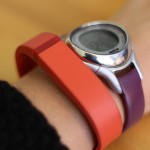 About six weeks ago, I lost my Fitbit Flex. I’d been wearing it for two years, almost to the day.
About six weeks ago, I lost my Fitbit Flex. I’d been wearing it for two years, almost to the day.
This apparently makes me an anomaly. Consumer surveys suggest that many people — perhaps even most — lose interest in their devices within a few months.
I’m not surprised that many people would abandon using their tracking devices. People have a lot going on in their lives. It never seemed very plausible to me that vast numbers of “ordinary” people would adopt technology to change their health habits.
But does that mean wearables will be useless in healthcare (the organized part of the system) or “health care” (the way people take actions to improve their health or the health of someone else)?
It is really too soon to say. So much depends on whether a company like Fitbit can better understand what different types of users want and need from a device. I personally believe that the people who are most likely to benefit health-wise from the data-gathering capabilities of a device are also the ones who are most likely to be involved with healthcare professionals. People like Joan, for instance.
This is actually why I purchased a Fitbit in the first place. In the fall of 2013, it was a popular wearable device and I wanted to see whether it might be able to help address some common issues that we often help people with in primary care.
In this post, I’m going to share my own experience with my Fitbit, including how I can envision it being useful in the context of primary care. But if you are interested in wearables for older adults, I highly recommend reading this AARP report (July 2015), in which they studied the experience of 92 older adults using sleep and activity trackers. (Lots to pick apart in that report; perhaps in a future post.)
There is also some extremely interesting information on the state of the digital health industry here, summarizing Rock Health’s 2015 report on consumer adoption trends in digital health.

